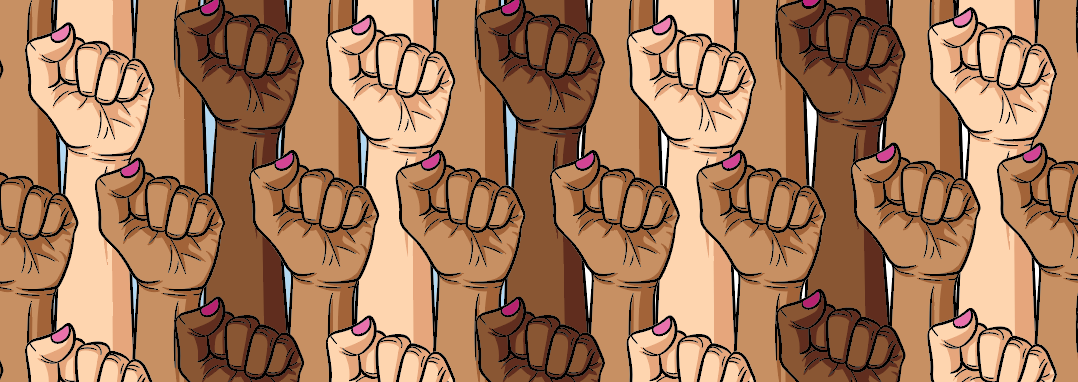Today is the 110th International Women’s Day. The theme is #ChooseToChallenge, a timely one, given the negative and disproportionate impact of the Covid-19 pandemic on women.

It is vitally important that pandemic response plans are updated and revised to incorporate both gender and anti-corruption considerations (Photo: Freepik, Copyright)
Approximately forty percent of working women occupy roles in industries that are hardest hit. This has also increased already existing inequalities in unpaid care and domestic work. Covid-19 is also making women more vulnerable to corruption. Transparency International reports that women in Zimbabwe are being sexually extorted for access to water and in Nigeria, police arrest women for minor COVID-19 infractions and sexually abuse them while they’re in custody.
U4 has pointed out that most governments’ pandemic response plans and policies do not consider issues of corruption, transparency and accountability enough, and researchers have observed that many governments have not included women in their Covid-19 task forces. It is vitally important that pandemic response plans are updated and revised to incorporate both gender and anti-corruption considerations. If we fail to heed this year’s theme and correct these anomalies, there is a significant risk that Covid-19 will reverse progress already made towards gender equality.
Celebrating women in public office
Despite the negative outlook, the past few months have brought some good news concerning appointments of women to important public offices. There is substantial evidence that closing the political gender gap can help to reduce corruption, so we celebrate the appointments and work of the women highlighted below.
- Laura McAllister hopes to be part of the new governance FIFA structure that sheds its previous corrupt reputation.
- Ngozi Okonjo-Iweala became the first African woman to lead the World Trade Organisation.
- UN special envoy for Libya, Stephanie Williams’ report is due on March 15. The report looks into accusations of interim Prime Minister, Abdul Hamid Dbeibah, bribing members of the political dialogue forum for their votes.
In another first, women now make up the majority of members in the African Union’s Operating commission. This comes at a time when the African Union is under pressure to address administrative corruption and abuses that include sexual harassment of women employees.
Gender and corruption online course
At the U4 Anti-Corruption Resource Centre, we invite staff of U4 partner agencies and their implementing partners in civil society and government to sign up for our popular gender and corruption online course. Spaces are running out fast, so be sure to get onto our waiting list. The course will run from 12–30 April and 3–22 October 2021. Sign up on the link above if you work for one of our partner agencies, or contact course@u4.no.
Gender and anti-corruption community of practice
If you are a gender or anti-corruption activist, practitioner, or researcher, we would like to interest you in our soon-to-be established International Gender, Inclusion and Anti-Corruption Community of Practice. The aim of the community of practice is to bring together as many people as possible who are working in these areas to improve cooperation and strengthen attention to gender and inclusion in anti-corruption efforts worldwide. We will be sending out more information in due course. In the meantime, send an email to monica.kirya@cmi.no if you are intrigued!
Women, gender and power in fiction
In case you have some extra time, join the Vox Book Club as they discuss Naomi Alderman’s The Power, which won the Women’s Prize for Fiction in 2017. The book imagines an alternative universe in which women have acquired new super-powers, overturning established gender hierarchies.
Here is some other corruption related news we thought you might find interesting:
- Deloitte was fined $80m for its role in the corruption scandal that saw the former Malaysian prime minister use the state fund 1MDB to embezzle billions.
- At the UN-Interparliamentary Union (IPU) Annual Parliamentary Hearing, the General Assembly’s President stressed the need for more vigilance against corruption during the pandemic and called for an increase in gender-sensitive corruption policies. Here’s some TI research on why this is so important to address. We are looking forward to reading the 2021 Global Health 50/50 Reportwhen it is released on March 8.
- The government of the Indian state faces scrutiny for its procurement processes during of the Covid-19 pandemic.
- As COVAX continues delivering vaccines around the world, Afghans worry the vaccine will be appropriated by politicians and warlords. Africans, similarly, express concerns that corruption will taint vaccination efforts following reports of officials benefiting from inflated supply tenders for PPE.
- According to a new Transparency International report, corruption in Africa continues to be endemic despite the adoption of the African Union Convention on Preventing and Combatting Corruption (AUCPCC) in 2003.
- The Council of Europe’s Group of States against Corruption finds that Austria has failed to address corruption among members of parliament, judges and prosecutors.
- Chicago is the United States’ most corrupt city.